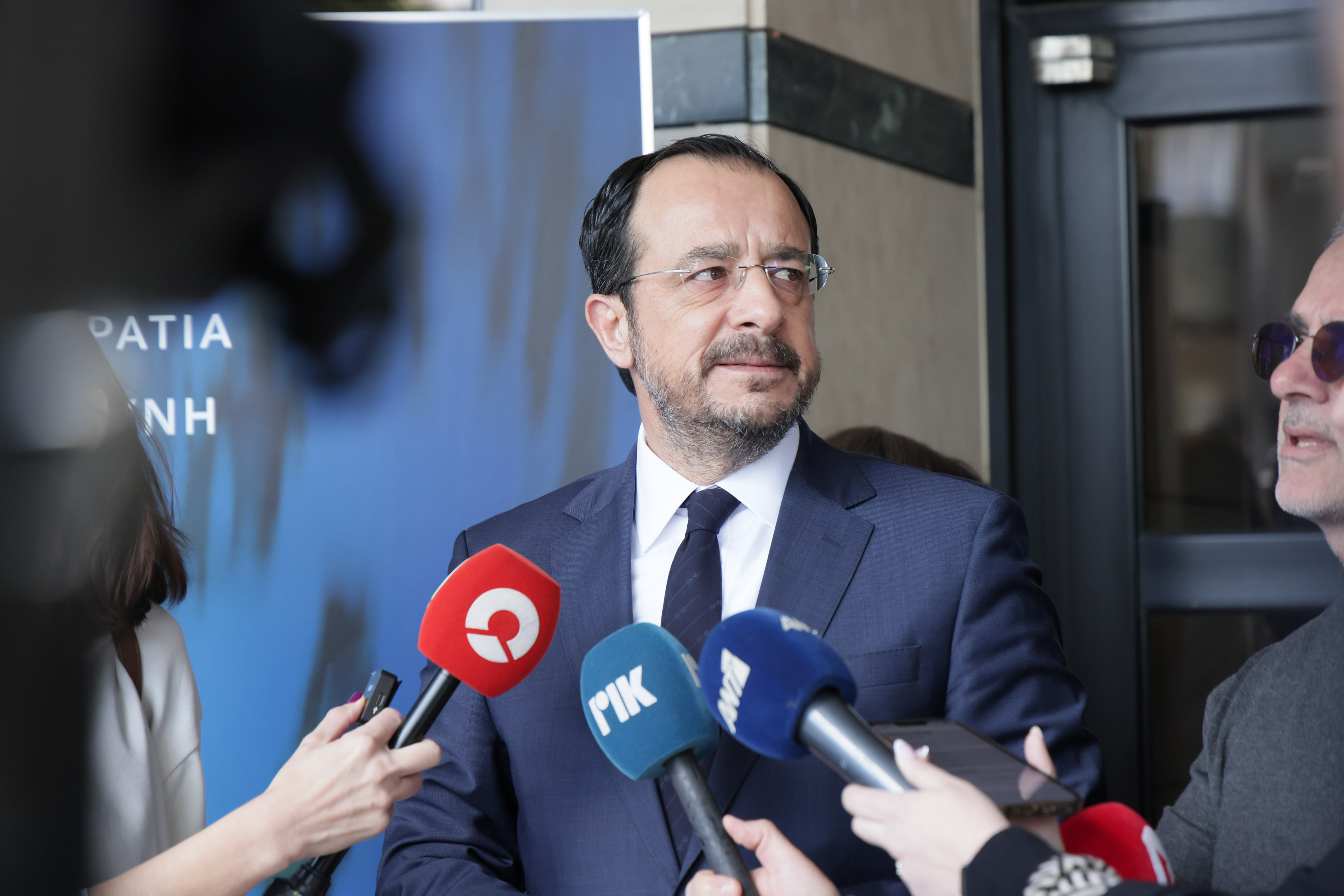There is “no crisis” between Cyprus and Greece over the matter of the Great Sea Interconnector, President Nikos Christodoulides insisted on Tuesday amid an open rift between the two countries on the issue.
“There is no crisis. There may be some technocratic differences in relation to the project, a project of strategic importance that, I want to repeat for the umpteenth time, the Republic of Cyprus both supports the project and wishes for it to be implemented,” he said during an interview with American news website HuffPost.
He added that those “technocratic, technical details” are “the responsibility of the independent authorities to resolve”, and that “beyond that, there is absolutely no crisis”.
Asked whether the interconnector will be built, he said it will “of course” be built, and that “of course, we are working in that direction”.
“The desire of the Republic of Cyprus and the desire of the Greek government, and I am quoting here from my discussion with the Greek prime minister [Kyriakos Mitsotakis], is of course to create the electrical interconnection,” he said.
Then asked about potential objections to the project on the part of the Turkish government, he said “I do not think anyone, especially the governments of Greece and Cyprus, will in any way accept the absurd objections from Turkey”.
“The project, its implementation, and its sustainability depend on how quickly we move towards its implementation,” he said, before highlighting the European Union’s funding of the project as evidence of its viability.
“Of course, for the European Union to consider it a project of common interest, of course it is sustainable,” he said.
He was then asked about the statements he had made on Sunday, wherein he had fired a shot across the bows of Greece’s independent transmission system operator Admie over an objection it had filed to the Cyprus energy regulatory authority (Cera)’s verification of only €82 million of Admie’s claimed €251m expenses, saying that Cyprus “will not be blackmailed by any head of Admie”.
“My statement … came precisely because I interpreted the action which took place as a questioning, if you will, of the agreement which was made at a political level between the Greek prime minister and myself,” he said, before referring to the €25m annual payment the Republic of Cyprus had agreed to send to Admie but has thus far withheld.
“Let me say something about the €25m which may not be known in Greece. Last week, as soon as I returned from New York, we approved the Republic of Cyprus’ budget for 2026, which has already been submitted by the finance minister [Makis Keravnos] to parliament,” he began.
“In it, there is also the provision for another €25m which concerns the second year.”
His comments come after Greek Energy Minister Stavros Papastavrou had decried what he described as “constantly conflicting messages from the Cypriot side” over the matter of the interconnector.
“The finance minister questions the viability of the project both before and after the meeting of President Nikos Christodoulides and Prime Minister Kyriakos Mitsotakis in New York,” he said during an appearance on Open TV on Monday.
He also made reference to Christodoulides’ “blackmail” comment, saying, “51 per cent of Admie belongs to the Hellenic Republic” and that “the Hellenic Republic does not engage in blackmail”.
Earlier on Monday, Christodoulides had insisted that relations between Greece and Cyprus are “stronger than ever”.
Cyprus agreed last year to make five annual payments of €25m to Admie before the interconnector is operational.
This would in effect help finance the project and ensure that Admie, its 51 per cent shareholder and implementing body, will have a stable income while investing in the project before it turns a profit.
However, the Cypriot government has thus far withheld the funds, citing a lack of tangible progress on the project and differences in opinion regarding how the money should be sourced.
To this end, Papanastasiou had said last month that Cyprus will pay the first €25m instalment when the project is being “implemented in its entirety”, and that the construction of cables alone is “not enough” to meet this criterion.
The government had initially planned to utilise funds made available to it through the European Union’s emissions trading system (ETS) to make the payments, so as to prevent the burden of the payments from falling on the taxpayer.
Admie had warned that this arrangement may violate the EU’s rules on state aid, and as such asked the Cyprus energy regulatory authority (Cera) to begin charging consumers instead.
In September, Greek Deputy Prime Minister Kostis Hatzidakis had called on the Cypriot government to “clarify its position” over the project after Keravnos had made reference to two “independent and serious organisations” which have “concluded that the project is not sustainable”.
He added that seabed surveys to determine where cables we laid “have not even been completed” and that the completion of those surveys is “decisive for the total cost of the project”.
This version of events had been disputed by Greek Foreign Minister Giorgos Gerapetritis, who had said that surveys on the seabed in advance of the laying of electricity cables “did not stop”, but that in fact, “the research was completed according to its planning”.






Click here to change your cookie preferences